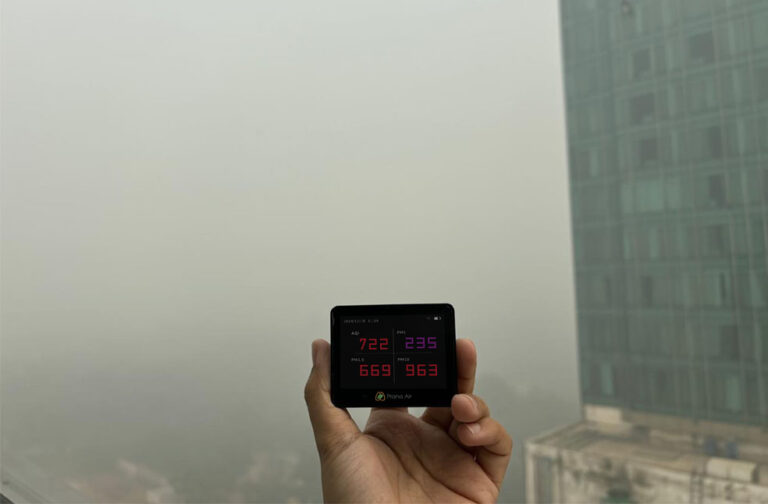New Delhi: Authorities in India’s capital have implemented drastic measures, including school closures, halting construction, and banning non-essential trucks, after air pollution levels reached their worst this season.
A toxic smog engulfed much of northern India on November 18, worsened by dense fog, with air quality in parts of Delhi’s National Capital Territory (NCT) reaching a hazardous new high of 1,081, according to IQAir’s live rankings. India’s pollution control authority reported a 24-hour AQI of 484 in Delhi, classified as “severe plus,” marking the highest reading this year.
Experts note that Air Quality Index (AQI) scores may vary across countries due to different scales used to assess pollutant concentrations, meaning the same amount of pollution can yield different AQI values.
All of North India has been plunged into a medical emergency as stubble burning continues unchecked across the country. All cities across the country – in UP, Bihar, Rajasthan, Haryana, MP and Delhi – are reeling under severe levels of pollution.
And yet despite rising severity… https://t.co/LPVufdKHQI
— Atishi (@AtishiAAP) November 18, 2024
The annual winter smog, a deadly mix of smoke and fog, is exacerbated by illegal farm fires in nearby states, where stubble is burned to clear fields. According to satellite data, these fires have contributed up to 40% of Delhi’s pollution, with over 1,300 fires detected on November 17 alone. Cooler temperatures and stagnant winds during the season further trap pollutants, worsening air quality from mid-October through January.
In response, authorities have shifted schools to online classes and tightened construction and traffic restrictions to curb further pollution, aiming to reduce traffic congestion and protect children.
Delhi Chief Minister Atishi stated that, “Physical classes shall be discontinued for all students, apart from Class 10 and 12.”
While such measures are necessary, they highlight the grim reality faced by residents. Many cannot afford air filters or adequately seal their homes from the toxic air, which has been linked to thousands of premature deaths annually.
Delhi, home to over 30 million people, consistently ranks among the most polluted cities globally during the winter months.
The Supreme Court of India recently underscored the urgency of addressing this crisis, declaring clean air a fundamental human right and urging central and state governments to take immediate action.



